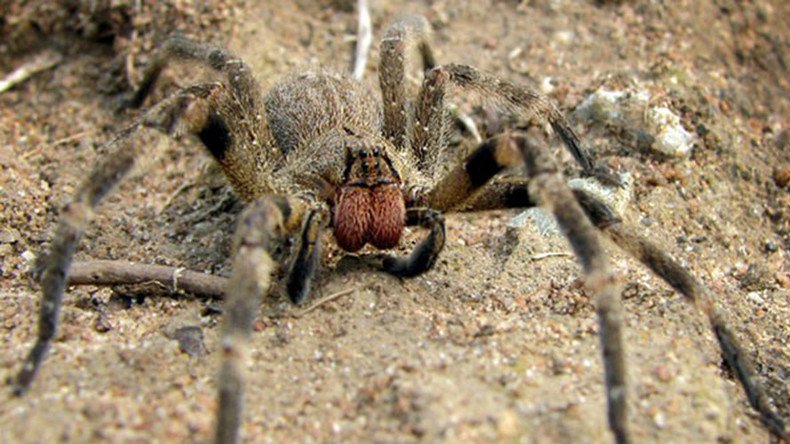Potential erectile dysfunction cure discovered in venom of lethal Brazilian spider (VIDEO)

Arachnophobes will have to harden their resolve if they are to benefit from a possible new cure for erectile dysfunction.
New research into the venom of the Brazilian wandering spider has pinpointed the chemical thought to be responsible for long, painful erections experienced by those who fall victim to the spider’s bite.
Marta de Nascimento Cordeiro, a researcher at the Ezequiel Dias Foundation in Belo Horizonte, Brazil, said: “Every fraction of the poison was tested on mice, and we succeeded in identifying the fraction responsible for the penile erection.”
Previously, doctors cautioned patients with heart problems against using impotence medications after it was found that Sildenafil, a component in Viagra, aggravated conditions such as coronary ischemia, congestive heart failure and low blood pressure.
Cordeiro is now hopeful the discovery will lead to the production of new treatments free from any side effects.
The tropical spider, which gains its name from its tendency to wander into urban areas, can grow up to two inches in length and a leg span that can reach up to six inches.
Other symptoms of its bites include abdominal cramps, hypothermia, blurred vision and convulsions. The species, otherwise known as the Phoneutria nigriventer, is known to have killed at least 14 people.
Normally found in fruit plantations, it has shown up in supermarkets across North America and Europe in recent years.
Earlier this month, a mother was forced to leave her home in Stanley, County Durham in northern England, after hundreds of Brazilian wandering spiders were discovered stowed away in a banana she had bought.
That's bananas! Swarm of deadly spiders crawl from fruit, forcing mother & baby from home https://t.co/ykc3vVJTuw
— RT (@RT_com) May 4, 2017













